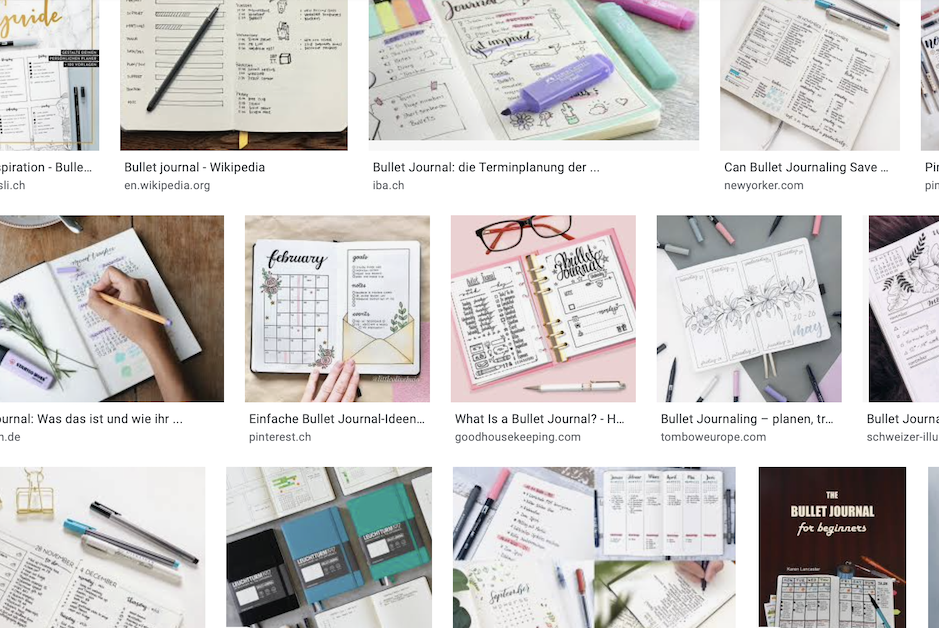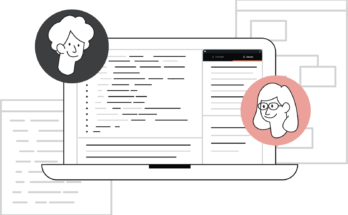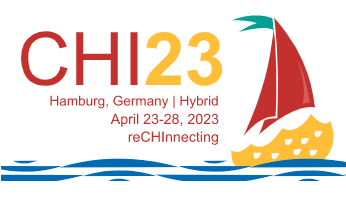One of the most critical human abilities is our capacity to extend our perception backwards and forwards in our lived experience. Persuasive technologies often leverage this in different ways – to help people make sense of all kinds of events, to maintain or develop their identities, objectives and values. We know from our own research that when people encounter challenges in life, reflection can ensure we adapt in balanced and considered ways (Cherubini et al. 2020). But, while this is not a big secret, the exact mechanisms that make this a reliable conduit to encourage (or discourage) behavioural change is still being explored.
History, Language and Myth
We established the tradition of documenting experience many centuries ago. We can speculate on the lives of many important figures in history because, outside of their notable works, many chronicled their thoughts and day-to-day lives as well. We have context around why they might have chosen to work on certain things or taken particular approaches. Similarly, as researchers, we are interested in more than how technology can play a role but how it integrates or facilitates motivation in and around these tools (Epstein et al. 2015).
Contrary to television and film, journals do not need to be ’for prosperity’; they are rarely as neat or exquisite as the grand manuscripts we might envision. Journals, sketchbooks and commonplace books were often a place to express and arrange thinking in an external domain – slowly teasing out reasoning or order – often through simple association and spontaneity. Extending this further, an expression to remember at this stage is ’the mind does not have a one of its own’. Until we externalise thoughts, we are trusting our brain to keep track of things.
Psychological research has shown the brain can be a problematic place to keep track of things or reason from an open or non-biased viewpoint – especially for those with conditions like Depression (Rizley, 1978) or PTSD (Kennedy & Prock, 2018). These facts are increasingly concerning as human beings become exposed to more sources of novel experience than ever before. All of these are captured and filtered by mechanisms that haven’t changed substantially since our hunter-gathering ancestors. Technologies may improve, but these still rely on meditating ’hardware’ that was only concerned with homeostasis a relatively short time ago. And, despite promises of augmenting or improving the brain itself through technology in future we will be reliant on our current capacity for some time come.
Language and writing were so profound to our development because it allowed us to distribute problems far more efficiently. Externalising our thoughts and experiences is still one of the best ways to wrestle with challenges and is often the cornerstone of reflection. While this cognitive ‘trick’ was an advantage in the past, it is quickly becoming a necessity of healthy function within the complexity of modern times.
Bullets, ‘Influencers’ and iPads
It is no surprise then that various ‘systems’ for organising our selves in external ways have grown in popularity in recent years. One of the most notable and familiar to people outside of the academic space is ‘Bullet Journaling’ – a system of noting events, tasks or essential ideas methodically. There has been an explosion of materials covering the nuances of this method; it’s relative simplicity and approachability make it highly compelling (Ayobi et al. 2018).
People use social platforms like YouTube to share practical guidance at every level of expertise; they debate the nuances of the technique on Reddit and similar forums. They even share ‘spreads’ on Instagram or Twitter as part of the extended portrait of themselves. It is not to say that Bullet Journals are the only or best example; many approaches have their loyal fan bases or ’extended universes’. Organisational systems fall in and out of fashion all the time; many are coexisting in a given moment.

Popular sites like Instagram and Pinterest are inundated with examples of Bullet Journals, this is just a sample of results from Google Image Search. Some stationary companies now have entire product lines orientated around the practice.
The modular nature of Bullet Journals has been incredibly useful to researchers, as well as it’s active communities to build new technologies that take advantage of their important components (Ayobi, Marshall & Cox. 2020). Part of the appeal (for users and researchers) comes from windows in which to see how people are tackling certain kinds of information or problem. ’Trackers’ are discrete structures and come in a wide variety of shapes, sizes or configurations.
These modules are highly replicable and optimised ’building blocks’ that people can experiment with and adapt to their own needs. HCI researchers have already realised that these may be important to how we can construct ad-hoc structures to support us in difficult times. They may also be necessary to appreciate the best approaches to help reflection that leads to meaningful life changes as well.
A Different Kind of Engagement
While reflection is crucial, and people are testing new approaches all the time, there are still aspects that are poorly understood. For anyone who has tried to start a diary, one of the issues is reflection can be more comfortable for some and almost impossible for others. Even though we can see the potential benefits, we cannot seem to ’get into it‘ for ourselves. If that sounds familiar, it’s because it is also the problem we face with many other activities we know are good for us but struggled to sustain.
The difference is in contrast to exercise (for example), reflection can extend it’s influence on motivation into other domains in ways that others cannot. Examination – through journaling, therapy and conversation with friends or relatives etc. – interfaces with our attitudes or our world view. Like a good book, it is private space for our imagination to stretch its legs and build the momentum to translate into the real world.
Tools like Bullet Journalling may help new pockets of the population to establish a reflective habit but a new or better way for people to reflect is not the intention of my research. It would be impossible to find something with applicability to every person, demographic or culture. What more interesting is how we can help people to match themselves with existing approaches, appropriate to them and anticipate when those techniques might need to be adjusted. Just because Bullet Journaling can work for one person doesn’t mean it will always work for them.
Researchers are slowly piecing together principal aspects of reflection – the advantages of particular mediums (Corbin Frazier & Elick. 2015) or new examples in specific contexts (Lim et al. 2019). But there are opportunities to build systems that grow with us, offering straightforward ways to find perspective when we are vulnerable and triggering sophisticated introspection when conducive. Whilst we often think about engagement as a shadowy metric behind the manipulative algorithms of large companies – what if the engagement which technologies protected was our first and most crucial relationship. At a personal level and beyond, this is often the starting point to change which, like ourselves, is full of potential.
Author: James Tyler
References
Cherubini, M., Reut, L., Tyler, J., & Ortlieb, M. (2020). Inattentive, imprudent and inapt: discovering inadequacies of ICT during life-changing events through the lens of non-users. Behaviour & Information Technology, 1-28. https://doi.org/10.1080/0144929X.2020.1772879
Epstein, D. A., Ping, A., Fogarty, J., & Munson, S. A. (2015). A lived informatics model of personal informatics. In Proceedings of the 2015 ACM International Joint Conference on Pervasive and Ubiquitous Computing – UbiComp ’15 (pp. 731–742). ACM Press. https://doi.org/10.1145/2750858.2804250
Rizley, R. (1978). Depression and distortion in the attribution of causality. Journal of Abnormal Psychology, 87(1), 32–48. https://doi.org/10.1037/0021-843X.87.1.32
Kennedy, A. C., & Prock, K. A. (2018). “I Still Feel Like I Am Not Normal”: A Review of the Role of Stigma and Stigmatization Among Female Survivors of Child Sexual Abuse, Sexual Assault, and Intimate Partner Violence. Trauma, Violence, and Abuse, 19(5), 512–527. https://doi.org/10.1177/1524838016673601
Ayobi, A., Sonne, T., Marshall, P., & Cox, A. L. (2018). Flexible and mindful self-tracking: Design implications from paper bullet journals. Conference on Human Factors in Computing Systems – Proceedings, 2018-April, 1–14. https://doi.org/10.1145/3173574.3173602
Ayobi, A., Marshall, P., & Cox, A. L. (2020, April). Trackly: A Customisable and Pictorial Self-Tracking App to Support Agency in Multiple Sclerosis Self-Care. In Proceedings of the 2020 CHI Conference on Human Factors in Computing Systems (pp. 1-15). https://doi.org/10.1145/3313831.3376809
Corbin Frazier, L., & Eick, C. (2015). Approaches to critical reflection: written and video journaling. Reflective Practice, 16(5), 575–594. https://doi.org/10.1080/14623943.2015.1064374
Lim, C. Y., Berry, A. B. L., Hartzler, A. L., Hirsch, T., Carrell, D. S., Bermet, Z. A., & Ralston, J. D. (2019). Facilitating Self-reflection about Values and Self-care among Individuals with Chronic Conditions. In Conference on Human Factors in Computing Systems – Proceedings (pp. 1–12). ACM Press. https://doi.org/10.1145/3290605.3300885




